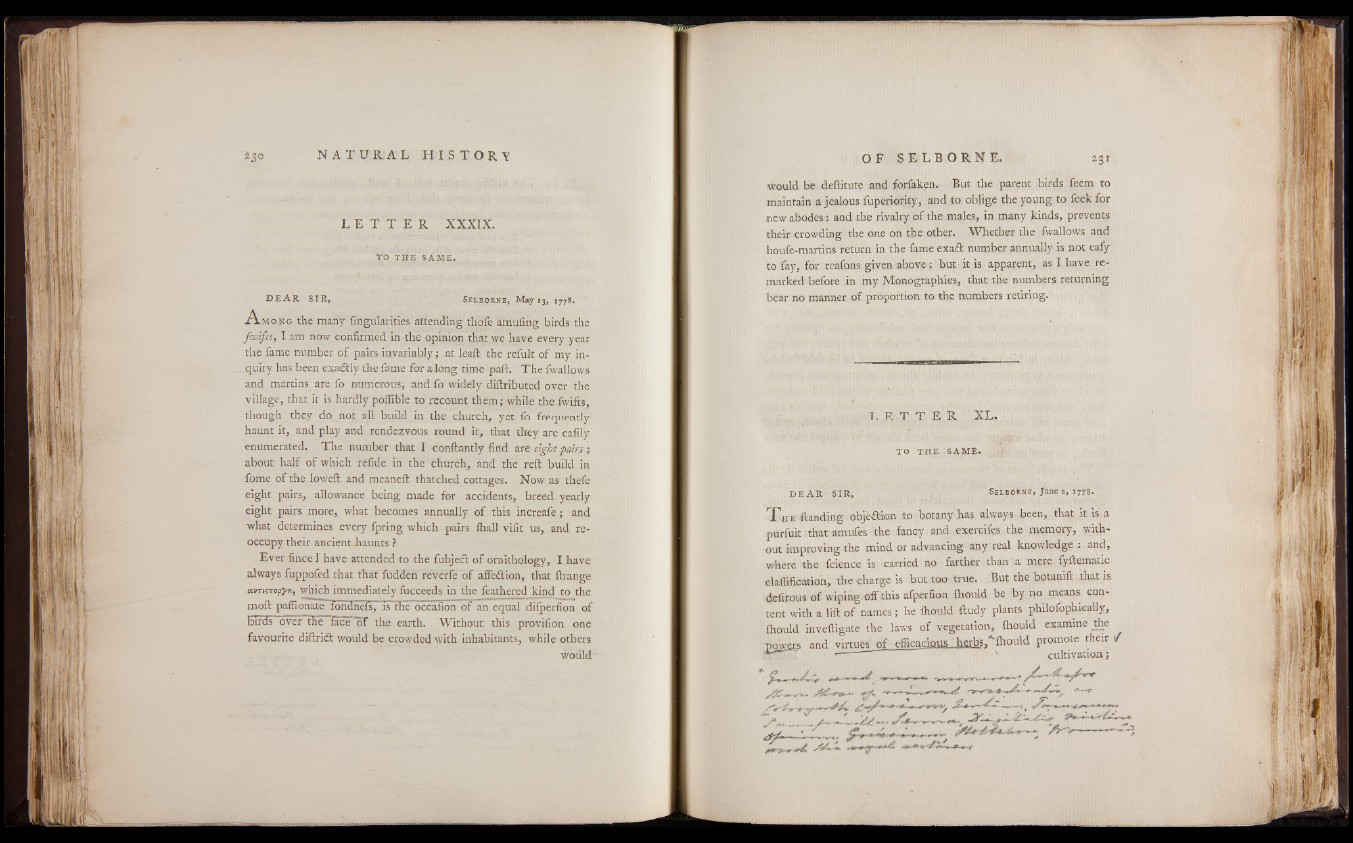
L E T T E R XX XIX.
TO T H E S AM E .
D E A R S IR , S e l b o r n e , May 1 3 , 1 7 7 * .
A mong the many fingularities attending thofe amufing birds the
Jwifts, I am now confirmed in the opinion that we have every year
the fame number of pairs invariably ; at leaft the refult of my inquiry
has been exadlly the fame for along time paft. The fwailows
and martins are fo numerous, and fo widely diftributed over the
village, that it is hardly poflible to recount them; while the fwifts,
though they do not all build in the church, yet fo frequently
haunt it, and play and rendezvous round it, that they are eafily
enumerated. The number that I conftantly find are eight pairs -,
about half of which refide in the church, and thé reft build in
fome of the loweft and meaneft thatched cottages. Now as thefe
eight pairs, allowance being made for accidents, breed yearly
eight pairs more, what becomes annually of this increafe; and
what determines every fpring which pairs fhall vifit us, and reoccupy
their ancient haunts ?
Ever fince I have attended to the fubjedt of ornithology, I have
always fuppofed that that fuddefi reverfe of affedtion, that ftrange
oa/rnrofyn, which immediately fucceeds in the feathered kind to the
moft paflionate fondnels, isTFie occafion of'an equal difperfion of
birds over the face bl the earth. Without this provifion one
favourite diftridt would be crowded with inhabitants, while others
would
would be deftitute and forfaken. But the parent birds feem to
maintain a jealous fuperiority, and to oblige the young to feek for
new abodes: and the rivalry of the males, in many kinds, prevents
their crowding the one on the other. Whether the fwailows and
houfe-martins return in the fame exact number annually is not eafy
to fay, for reafons given above : but it is apparent, as I have remarked
before in my Monographies, that the numbers returning
bear no manner of proportion to the numbers retiring.
L E T T E R XL.
TO T H E S A M E .
D E A R S IR , . S e l b o r n e , June 2, 177s .
TT*n e Handing objedtion to botany has always been, that it is a
purfuit that amufes the fancy and exercifes the memory, without
improving the mind or advancing any real knowledge : and,
where the fcience is carried no farther than a mere fyftematic
claffification, the charge is but too true. But the botanift that is
defirous of wiping off this afperfion Ihould be by no means content
with a lift of names; he Ihould ftudy plants philofophically,
Ihould inveftigate the laws of vegetation, Ihould examine _the
po^^cs and virtues of
■ Mil
I,*ihould promote their /
cultivation;
%
_ • y 1 -■**- B» t <«l|f "9
----